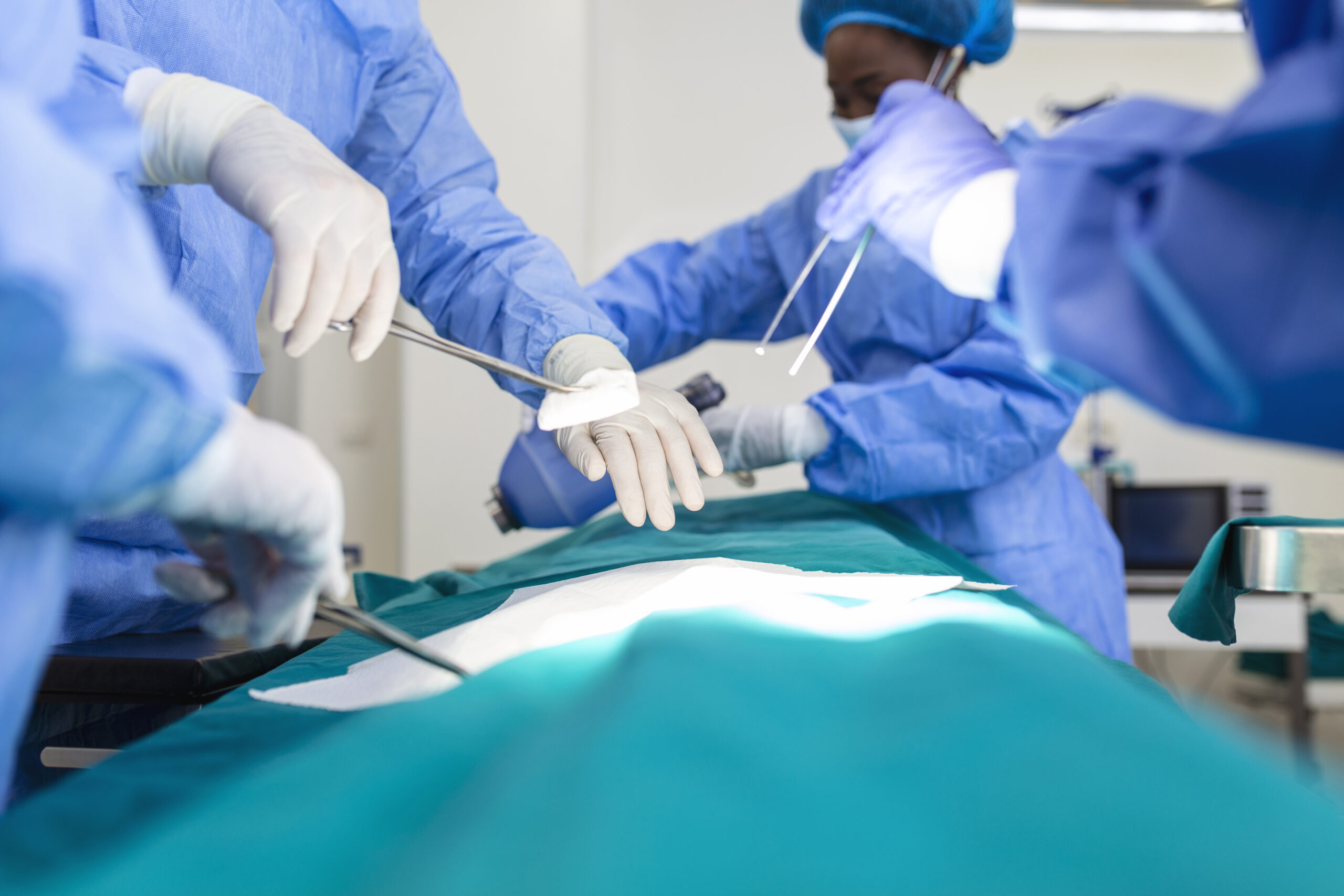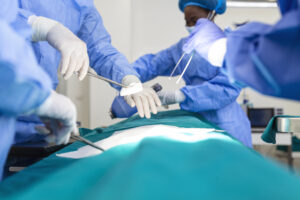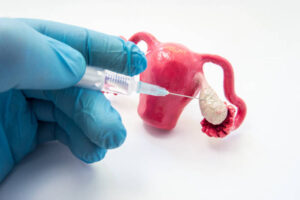Endometriosis is a challenging condition that affects many women, causing severe pelvic pain, heavy periods, fatigue, and difficulty conceiving. While treatment for endometriosis can include medication and lifestyle changes, some women find that laparoscopic endometriosis surgery offers the most effective relief.
If you’re wondering whether surgery is the right option for you, this guide will help. We’ll explain when to consider endometriosis laparoscopy, what the procedure involves, the expected endometriosis laparoscopy cost in India, and the next steps to take for your care.
Why Choose Laparoscopy for Endometriosis?
Laparoscopy is a minimally invasive surgical technique that uses very small incisions. A doctor inserts a tiny camera and specialized instruments to see and treat internal tissues. For endometriosis, this procedure serves two main purposes:
- Accurate Diagnosis – The surgeon can directly visualize endometriosis tissue inside the body, confirming the condition.
- Effective Treatment – During the same procedure, the surgeon can remove or destroy the problematic tissue.
This approach offers several key benefits:
- Faster Recovery – Healing is quicker compared to traditional open surgery.
- Less Post-Operative Pain – Smaller incisions generally mean reduced discomfort.
- Minimal Scarring – Only tiny marks remain after the surgery.
- Potential Fertility Improvement – Removing endometriosis tissue can help some women conceive more easily.
When to Think About Laparoscopic Surgery
Not everyone with endometriosis needs surgery. However, doctors often recommend laparoscopic endometriosis surgery in certain situations, including:
- Severe Pain That Doesn’t Improve – If pelvic pain is intense, disrupts daily life, and medications haven’t helped, surgery can provide more effective relief.
- Difficulty Conceiving – For women struggling to get pregnant, laparoscopy can remove tissue that may be blocking reproductive organs, improving fertility chances.
- Endometriosis Cysts on the Ovaries – Ovarian cysts caused by endometriosis often require surgical removal.
- Endometriosis Affecting Other Organs – When the disease spreads to the bladder, bowel, or other organs, surgery may be necessary to prevent complications.
- Medication Isn’t Effective – If hormonal treatments or painkillers haven’t worked, surgery becomes a viable next step.
- Recurring Symptoms – Pain or other problems returning after previous treatments may indicate the need for another laparoscopic procedure.
When Surgery Might Not Be Needed
Laparoscopic endometriosis surgery isn’t always required. You may not need surgery if:
- Mild Symptoms – Your pain or other symptoms are manageable with medication or lifestyle changes.
- No Immediate Fertility Goals – If you’re not trying to conceive and prefer to manage endometriosis without an operation.
- Other Health Risks – Existing health conditions make surgery too risky or complicated.
In such cases, doctors may recommend continuing treatment for endometriosis through medications, hormone therapy, or other non-surgical approaches.
What to Expect from Laparoscopic Surgery
If you and your doctor decide that laparoscopic endometriosis surgery is the right choice, here’s what typically happens:
- Before Surgery
You’ll undergo routine tests, such as blood work or an ultrasound, and meet with the anesthesia team to review the procedure and ensure your safety.
- During Surgery
The surgery is performed under general anesthesia. The surgeon makes a few small incisions and uses a tiny camera to locate and remove the endometriosis tissue.
- Hospital Stay
Many patients can go home the next day. For more complex cases, a 2–3 day hospital stay may be needed.
- Recovery
Light activities can usually be resumed within 1–2 weeks, while full recovery typically takes 4–6 weeks.
- Follow-Up Care
After surgery, your doctor may recommend medications or hormone therapy to help prevent endometriosis from returning and support long-term health.
Cost of Endometriosis Laparoscopy in India
The cost of this surgery depends on a few things. This includes the city, the hospital, the doctor’s skill, and how complex your case is.
- Simple diagnostic laparoscopy: around ₹35,000 – ₹80,000
- Standard surgery to remove tissue: ₹60,000 – ₹1,50,000
- Advanced cases (involving bowel or bladder): ₹2,00,000 or more
At Advamed, we believe in being clear about costs. We will tell you exactly what the price includes. This covers the surgery, your hospital stay, the anesthesia, and your care after the operation. Always ask your doctor for a full cost breakdown before you decide.
Key Questions to Ask Your Surgeon
It’s important to ask questions. Here are some good ones:
- How will this surgery help me specifically?
- What are the possible risks or problems?
- Will you remove all of the endometriosis tissue?
- How much experience do you have with this exact surgery?
- What will my recovery and follow-up care be like?
Making the Right Choice
Deciding to have surgery is a personal choice. You should think about:
- How bad your symptoms are and how they affect you.
- If you want to have children now or later.
- How well your body has responded to medicines so far.
- Finding a surgeon who is highly skilled in this procedure.
Surgery can give great pain relief and may help with fertility. But sometimes the problem can come back. Many women get the best long-term results by combining surgery with medicine and healthy living.
Final Thoughts
Laparoscopic endometriosis surgery is a highly effective treatment, especially for women experiencing severe pain, infertility, or advanced endometriosis. However, it’s important not to rush the decision. Consider your options carefully, set realistic expectations, and choose a surgical team with extensive experience.
At Advamed, our experts specialize in gentle, minimally invasive surgery tailored to each patient’s unique needs. From your initial diagnosis to full recovery, we guide you through every step, ensuring safe and effective care. If you’re wondering whether laparoscopic surgery is right for you, our team is here to provide support, advice, and personalized treatment.
FAQs
The main reason is for strong, lasting relief from severe pelvic pain that doesn’t get better with medicine. It can also help if you are having trouble getting pregnant.
Advamed has a team of experts who specialize in this type of gentle surgery. They create a personalized plan for each patient and guide you through every step, from diagnosis to full recovery.
No, it is a minimally invasive surgery. This means it uses very small cuts instead of one large one. This leads to less pain, faster healing, and smaller scars.
Yes, sometimes the tissue can grow back. To help prevent this, your doctor may suggest medicine or lifestyle changes along with the surgery for the best long-term results.
At Advamed, the cost is transparent and includes everything: the surgery fee, your hospital room, the anesthesia, and your care after the operation. They will give you a full breakdown with no hidden charges.











